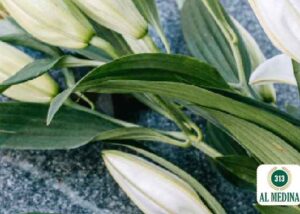Do Ahl Sunnah believe in punishment of the grave?
Quran
Hadith
Islamic Text
بِسْمِ اللَّهِ الرَّحْمَنِ الرَّحِيمِ
In the Name of Allah Most Merciful Most Kind
Short Answer
Yes, we do believe in the punishment of the grave.
Hadith
عَنْ عَائِشَةَ، زَوْجِ النَّبِيِّ صَلَّى اللهُ عَلَيْهِ وَسَلَّمَ، أَخْبَرَتْهُ: ” أَنَّ رَسُولَ اللَّهِ صَلَّى اللهُ عَلَيْهِ وَسَلَّمَ كَانَ يَدْعُو فِي الصَّلاَةِ: اللَّهُمَّ إِنِّي أَعُوذُ بِكَ مِنْ عَذَابِ القَبْرِ
(Sayidah) Aishah the wife of the Prophet ﷺ narrated that, Allah’s Messenger ﷺ used to supplicate in the prayer saying, ‘O Allah, I seek refuge with You from the punishment of the grave.’ (Sahih al-Bukhari, 832).
There are so many evidences proving the punishment of the grave that scholars have written entire works on the subject. However, some sects, like the Mu’tazilah, rejected this type of punishment. Despite that, Ahl al-Sunnah strongly opposed the Mu’tazilah due to the numerous evidences proving this belief.
In the Hadith above, we find the Holy Prophet ﷺ seeking protection from the punishment of the grave, the Prophet ﷺ would not seek refuge from something that does not exist or is not a possibility. Therefore, it is a clear evidence in support of the existence of such a punishment.
Further, for those who are living, they should make dua for the deceased in the grave and it is also permissible for a person to plant something fresh on the grave as the Prophet ﷺ did.
Classical scholars
The proofs of Ahl al-sunnah are so numerous that we find Imam al-Ghazali, claiming that this type of punishment is Mutawatir.
وأما عذاب القبر فقد دلت عليه قواطع الشرع إذ تواتر عن النبي صلى الله عليه وسلم وعن الصحابة رضي الله عنهم
As for the punishment of the grave, indeed definite evidence from revelation has proven it, because it is Mutawatir from the Prophet ﷺ and the Sahabah . (Imam al-Ghazali, al-Iqtisaad fi al-Itiqaad).
And Allah Most High Knows best.
– Answered by Shaykh Noorud-deen Rashid (04.05.2021)






